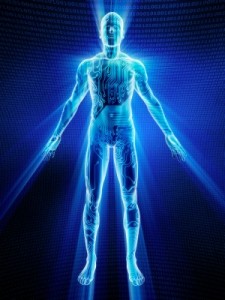Being Pro-Life 3.0
 This characterization of the many facets of being pro-life is so brilliant I wish I could say I thought of it. Scott Rae, in an interview with John Stonestreet at BreakPoint.org, brings the pro-life movement into the 21st century in an attempt to get us all to wake up to the perils we are facing.
This characterization of the many facets of being pro-life is so brilliant I wish I could say I thought of it. Scott Rae, in an interview with John Stonestreet at BreakPoint.org, brings the pro-life movement into the 21st century in an attempt to get us all to wake up to the perils we are facing.
Rae describes three progressions of pro-life issues:
- Pro-life 1.0 deals with “the taking of life.” Abortion, assisted suicide, and euthanasia
- Pro-life 2.0 deals with “the making of life.” Artificial insemination, IVF, surrogacy, preimplantation genetic diagnosis, egg and sperm “donation”
- Pro-life 3.0 deals with “the remaking of life.” Genetic engineering, human enhancements, nanotechnology, human cloning, transhumanism
Brilliant, simple, easy to understand. (Did I mention that I wish I came up with it?)
Rae is Christian, not Catholic, but his comments apply to us as well. He says most of us are super familiar and on board with pro-life 1.0 issues. But moving to pro-life 2.0 issues, many do not understand why they are important. We can see the gift of a child to an infertile couple, but the dark-side of the fertility industry, the mass production, commodification and destruction of life, remains hidden.
And pro-life 3.0? Forget it. Every time I write about genetic engineering, human augmentation or transhumanism, I know I will be bombarded with comments from well-meaning Christians who really cannot see the difference between using technology to heal our bodies and using it to enhance our bodies in ways our Creator never intended. Many Christians also do not see pro-life 3.0 issues as extensions of the 1.0 and 2.0: the rejection of our biology in favor of “choice” and the rejection of the inherent value in simply being human.
In addition, I believe too many Catholics think that pro-life 3.0 issues are science fiction that are hundreds of years away. Easily ignored for the easier pro-life 1.0 issues.
 I recently reviewed Ray Kurzweil’s transhumanist manifesto, The Singularity is Near, where he describes the human body version 2.0. The human 2.0 will be mostly “non-biological” with all of our major systems, nervous, circulatory, immune, digestive, and respiratory augmented or replaced by nanotechnology. Nanobots will allow us to perform Olympic pace sprints for 15 minutes without taking a breath, eat whatever we want without gaining weight, have super-fast, limitless cognitive skills, summon a virtual reality, including a virtual lover, at will, and have a “back-up” of our consciousness ready if needed. We will never get sick and, most importantly to Kurzweil, we will never have to die.
I recently reviewed Ray Kurzweil’s transhumanist manifesto, The Singularity is Near, where he describes the human body version 2.0. The human 2.0 will be mostly “non-biological” with all of our major systems, nervous, circulatory, immune, digestive, and respiratory augmented or replaced by nanotechnology. Nanobots will allow us to perform Olympic pace sprints for 15 minutes without taking a breath, eat whatever we want without gaining weight, have super-fast, limitless cognitive skills, summon a virtual reality, including a virtual lover, at will, and have a “back-up” of our consciousness ready if needed. We will never get sick and, most importantly to Kurzweil, we will never have to die.
And while many disagree with Kurzweil’s time-line, he estimates human 2.0 maybe a reality as soon as the 2030s. I don’t know about you, but I will be planning to retire and enjoying bouncing grandchildren on my knee. So pro-life 3.0 issues are likely issues not for our great-grandchildren, but for us in our lifetimes.
Now, I love my faith and my fellow Catholics, but we are too often reactive not proactive. My mother, a soldier in pro-life 1.0 issues, told me about how her generation of Catholics ignored the abortion issue thinking legalized abortion would never happen. Then suddenly in 1973 abortion was the law of the land. Pro-life Catholics everywhere where reeling and wondering, “How did this happen?” As a result, we have spent the last five decades trying to fight this evil that has claims tens of millions of lives in the United States alone.
The same happened with pro-life 2.0 issues. An ounce of prevention may have been worth a pound of cure.
But we still have time to change the course of the 3.0 issues. We need laws now in the United States that prevent human cloning, germ-line genetic engineering and human enhancement experiments.
We cannot abandon the pro-life 1.0 and 2.0 issues, but we cannot ignore what is coming. It is time to be pro-life 3.0.
This article courtesy of Creative Minority Report.

